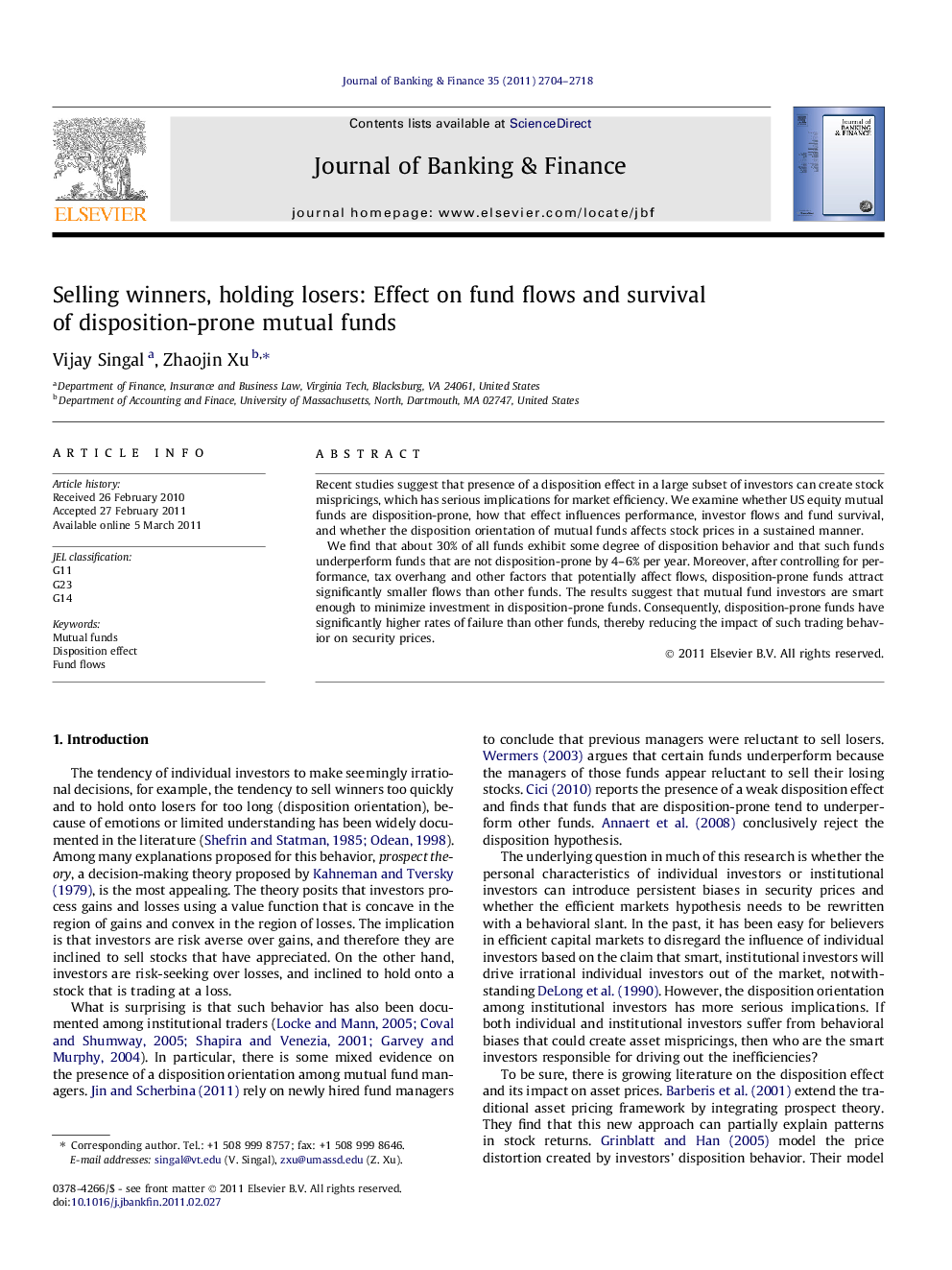| Article ID | Journal | Published Year | Pages | File Type |
|---|---|---|---|---|
| 5090133 | Journal of Banking & Finance | 2011 | 15 Pages |
Recent studies suggest that presence of a disposition effect in a large subset of investors can create stock mispricings, which has serious implications for market efficiency. We examine whether US equity mutual funds are disposition-prone, how that effect influences performance, investor flows and fund survival, and whether the disposition orientation of mutual funds affects stock prices in a sustained manner.We find that about 30% of all funds exhibit some degree of disposition behavior and that such funds underperform funds that are not disposition-prone by 4-6% per year. Moreover, after controlling for performance, tax overhang and other factors that potentially affect flows, disposition-prone funds attract significantly smaller flows than other funds. The results suggest that mutual fund investors are smart enough to minimize investment in disposition-prone funds. Consequently, disposition-prone funds have significantly higher rates of failure than other funds, thereby reducing the impact of such trading behavior on security prices.
